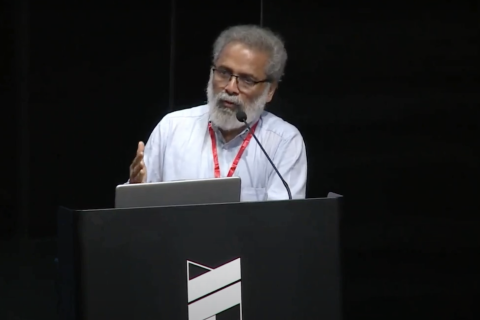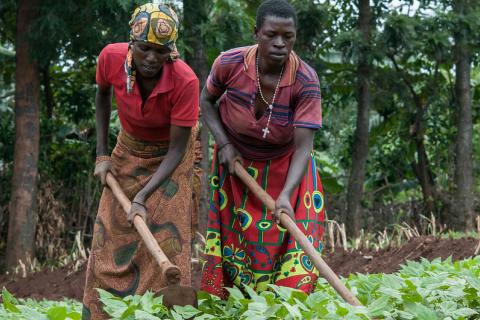Keynote Speech from Bram Büscher: Deepening Social Justice
Speaking truth to power is an art, but increasingly a lost art. This goes as much for academia as for the rest of the world. Indeed and unfortunately, much of academia reflects the world in which it functions and often makes the challenge of deepening social justice harder rather than smaller. To put it bluntly, much of academia has resorted to instrumental and naïve beliefs in innovation, technology and efficiency (which dominate the natural sciences) or (as in much of the social-economic sciences) increasingly arcane niche debates that too often revolve around virtue-signalling, methodological-theoretical wizardry or apolitical pragmatism. What we seem to have lost to a good degree – though to be sure: it was never a dominant endeavour and at the same time it has never been absent either – is the art of speaking truth to power.
Keynote Speech from Morgan Ody at the IoS Fair Transitions - LANDac Conference & Summit
A Growing Momentum to Promote Youth Land Rights in Tanzania
Tanzania’s youth population (defined as women and men between the ages of 15 and 35) constitutes about 35% of the country’s population. In Tanzania, youth engagement in agriculture is considered vital, given that youth form the largest part of the population and labour force in the country.
From conflict to public-private partnerships: Securing land-use rights and livelihoods in Mozambique
Mozambique’s 1997 land law recognises land rights acquired through customary practice and good faith occupancy, even without a formal title. However, the lack of transparent public confirmation or documentation can lead to conflict. Sr. Land and Resource Governance Advisor Karol Boudreaux discusses how a partnership between USAID and agribusiness Grupo Madal has helped the company and local communities address long-standing land-access issues and improve livelihoods.
10th anniversary of the CFS VGGT
Once again International Development organizations (World Bank, IFAD, FAO, USAID, GIZ and others) came together to discuss the Voluntary Guidelines, which were approved in May2012. An indisputable success of this was to have also associated the largest peasant movement, La Via Campesina, which from the day of approval enthusiastically applauded this process.
Women lead the change - why women’s land rights matter in Dutch and EU’s Africa strategies
Women own less than 20 percent of land in the world
Half of the world’s smallholder farmers are women
70 percent of Africa’s food is produced by women smallholder farmers
Interview with Javier Molina Cruz: Taking the VGGT to the Next Level
Over the past nine years, the project on Supporting Implementation of the Voluntary Guidelines on the Responsible Governance of Tenure of Land, Fisheries and Forests (VGGT) has helped countries make political commitments towards the eradication of hunger, food insecurity, and malnutrition, with the explicit outcome of increasing awareness among decision makers, development partners, and society at large regarding access to natural resources. The Food a





